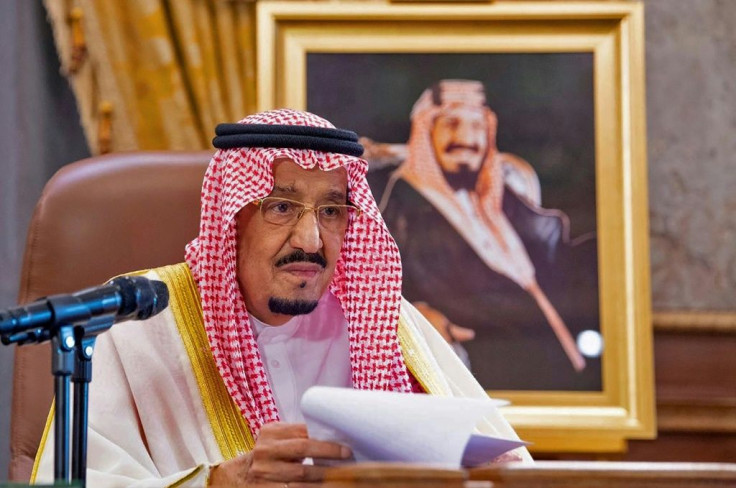Saudi Arabia’s Royal Family Infected With Coronavirus, Kingdom Declares Ceasefire In Yemen

KEY POINTS
- Crown Prince Mohammad bin Salman and his ministers have been put under quarantine
- King Salman Salman bin Abdulaziz Al Saud has been placed in isolation
- Saudi princes contracted the virus while visiting Europe
The coronavirus epidemic has now seeped into the lives of one of the wealthiest and most privileged groups of people on earth – the powerful royal family of Saudi Arabia. Up to 150 members of the family have reportedly been infected by the illness.
The New York Times reported that Crown Prince Mohammad bin Salman, the most powerful man in the oil kingdom, and his ministers have been put under quarantine at a location near the Red Sea, while his father, the 84-year-old King Salman Salman bin Abdulaziz Al Saud has been placed in isolation near the city of Jeddah.
King Salman’s nephew, the 70-year-old Prince Faisal bin Bandar bin Abdulaziz Al Saud, the governor of Riyadh, is reportedly in intensive care.
It is believed that Saudi princes contracted the virus while visiting Europe and brought it back to the kingdom and spread it to their many relatives.
Hundreds of beds have been prepared at the elite King Faisal Specialist Hospital in Riyadh for the royals and their close aides.
"Directives are to be ready for VIPs from around the country," said the operators of the elite facility. "We don't know how many cases we will get but [we are on] high alert.”
The Saudi royal family is huge – there are at least 15,000 members.
“If it is reaching into the [royal] family, then it becomes an urgent issue,” said Kristian Coates Ulrichsen, an expert on the Saudi royal family from Rice University in Texas.
Saudi Arabia has reported at least 3,287 cases of the virus and at least 44 deaths. The kingdom has already sealed off the holy Muslim shrines in Mecca and Medina and prohibited the year-round Umrah pilgrimage. The Saudis have also imposed travel bans, restricted movement within the kingdom and placed five cities under lockdown.
It remains unclear if the authorities will allow this year’s Hajj pilgrimage at the end of July – an event that attracts millions of people every year.
A Saudi health minister, Tawfiq al-Rabiah, warned on Tuesday that the worst is yet to come.
"Within the next few weeks, studies predict the number of infections will range from a minimum of 10,000 to a maximum of 200,000," he said.
In addition, the health crisis likely led Saudi authorities to announce a two-week ceasefire in the war in neighboring Yemen involving Iran-backed rebels – ostensibly to prevent a coronavirus outbreak in Yemen, the poorest nation in the Middle East.
The New York Times reported that Saudis want the ceasefire to “jump-start” peace talks brokered by the United Nations to end the five-year war.
The Saudi-led coalition in Yemen further stated: “On the occasion of holding and succeeding the efforts of the UN envoy to Yemen and to alleviate the suffering of the brotherly Yemeni people and work to confront the [coronavirus] pandemic and prevent it from spreading, the coalition announces a comprehensive ceasefire.”
Martin Griffiths, the UN special envoy, said: “The parties must now utilize this opportunity and cease immediately all hostilities with the utmost urgency.”
U.S. Secretary of State Mike Pompeo on Thursday urged the Houthi insurgents in Yemen to “respond in kind to the coalition’s initiative.”
Saudis may also have financial incentives to end the conflict in Yemen – the war is costing Riyadh an estimated $200 million a day, while the price of oil languishes below $30 a barrel.
© Copyright IBTimes 2024. All rights reserved.





















